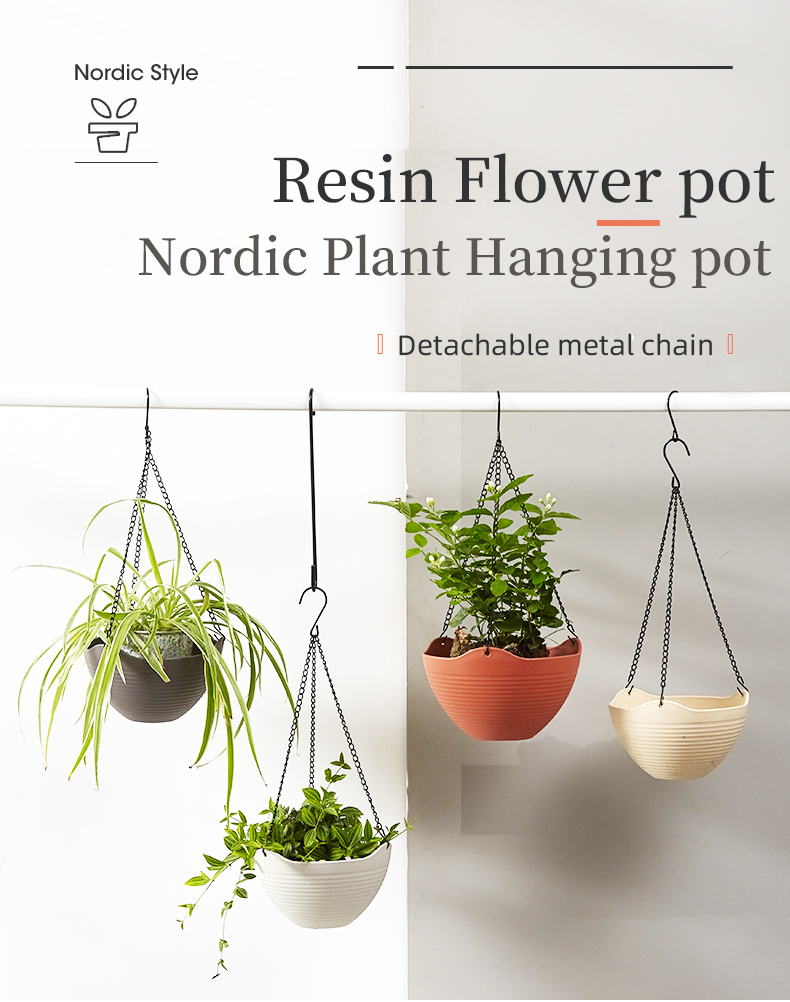What are Plant Hanging Flower Pots called?
Plant hanging flower pots, often referred to by various names, are a delightful addition to any home or garden. These suspended planters offer a unique way to showcase your favorite greenery, adding a touch of elegance and practicality to both indoor and outdoor spaces. Let's explore the different names used to describe these charming containers and how they can enhance your living environment.

Hanging Planters
One of the most straightforward and commonly used terms to describe these pots is "hanging planters." As the name suggests, these containers are designed to hang from various supports, including hooks, brackets, and tree branches. Hanging planters are versatile and come in a wide range of materials, shapes, and sizes, allowing you to create a personalized botanical display in your home or garden.
Hanging Flower Pots
Another frequently used term is "hanging flower pots." While these containers can certainly hold flowering plants, they are not limited to blooms alone. Hanging flower pots can accommodate a variety of plant types, from lush ferns and cascading ivy to succulents and herbs. Their design is conducive to the trailing or hanging growth habit of many plants, making them an ideal choice for showcasing flora with beautiful draping foliage.
Hanging Baskets
The term "hanging baskets" is often used interchangeably with hanging planters or hanging flower pots. These baskets are typically made from materials like wire, wicker, or coconut coir and are lined with a liner or moss to hold the soil and plants. Hanging baskets are well-suited for annual flowers, creating vibrant and colorful displays throughout the growing season.
Macramé Plant Hangers
Macramé plant hangers are a unique and artistic take on hanging planters. They are crafted from intricately knotted cords, creating a decorative holder for your potted plants. Macramé hangers add a bohemian or retro touch to your living space and are often used for showcasing trailing or vining plants like pothos, spider plants, or philodendrons.
Suspended Plant Holders
The term "suspended plant holders" is a broader description that encompasses various styles and materials used for hanging plants. These holders can be made from metal, ceramic, wood, or other materials, and they come in diverse shapes, such as orbs, teardrops, and geometric designs. Suspended plant holders offer an opportunity to incorporate artistic and eye-catching elements into your home or garden decor.
Hanging Garden Planters
For those who want to create a lush vertical garden, "hanging garden planters" are an apt description. These planters can be used to grow a variety of plants vertically, saving space and adding a green touch to walls, balconies, or pergolas. Hanging garden planters often feature multiple pockets or slots for individual plants.
Sky Planters
A more modern and innovative term used to describe hanging flower pots is "sky planters." These planters are unique in that they are designed to be upside-down, with the plant growing out of the bottom. Sky planters are space-saving and can be hung from ceilings or brackets, making them an intriguing conversation piece while adding greenery to unexpected places.
In conclusion, the variety of names used to describe plant hanging flower pots reflects the versatility and creativity these containers offer. Whether you prefer traditional hanging planters, artistic macramé hangers, or modern sky planters, there is a style to suit every aesthetic. These plastic flower pots not only enhance the beauty of your space but also allow you to enjoy the benefits of indoor gardening, even in limited spaces. So, explore the world of plant hanging flower pots, and let your imagination flourish as you create stunning displays of greenery in your surroundings.
评论
发表评论